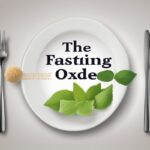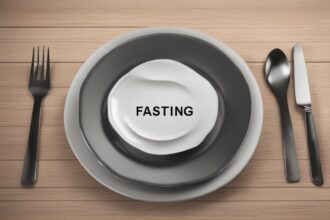Hey there, fasting enthusiasts and curious beginners! If you’re exploring the world of fasting or looking for practical fasting tips to make your journey smoother, you’ve come to the right place. Fasting isn’t just a trend; it’s a centuries-old practice with roots in culture, religion, and now, modern science. Whether you’re aiming for weight loss, improved mental clarity, or overall wellness, fasting can be a powerful tool—if done right. In this comprehensive guide, we’ll dive into the most frequently asked questions about fasting, blending actionable advice with scientific insights. Let’s unpack the myths, benefits, and best practices to help you fast with confidence and purpose.
What Is Fasting, and Why Should You Try It?
Fasting, at its core, is the voluntary abstention from food and, sometimes, drink for a specific period. It’s not about starvation but rather giving your body a break from constant digestion. From intermittent fasting (IF) to extended water fasts, there are various methods tailored to different goals. Research shows that fasting can promote cellular repair through autophagy, improve insulin sensitivity, and even support weight management (Mattson et al., 2017). But beyond the science, many people report feeling more energized and focused during a fast. If you’re new, starting with simple fasting tips like shorter fasting windows can ease you into the practice. The key is understanding why you’re fasting—be it for health, spiritual reasons, or curiosity—and aligning your approach accordingly.
What Are the Different Types of Fasting?
Not all fasting is created equal, and that’s a good thing! There’s a style for everyone, depending on your lifestyle and goals. Here’s a quick rundown of popular fasting methods to help you find the right fit while incorporating effective fasting advice:
- Intermittent Fasting (IF): This involves cycling between eating and fasting periods, like the 16/8 method (16 hours fasting, 8 hours eating). It’s beginner-friendly and flexible.
- Water Fasting: Consuming only water for 24–72 hours or more. It’s intense and should be done under medical supervision for extended periods (Fung, 2016).
- Alternate-Day Fasting: Alternating between normal eating days and very low-calorie or no-food days. It’s great for weight loss but can be challenging.
- Religious Fasting: Practices like Ramadan (fasting from dawn to sunset) or Lent, often tied to spiritual goals rather than health alone.
Choosing a method depends on your comfort level and health status. Always consult a healthcare provider if you have underlying conditions before diving into stricter fasts.
What Are the Health Benefits of Fasting?
Fasting isn’t just about skipping meals—it’s a potential game-changer for your health when paired with smart fasting strategies
How Can You Start Fasting Safely?
Jumping into fasting without prep can lead to headaches—literally and figuratively. If you’re new, ease in with these practical fasting tips for beginners to ensure a safe and sustainable start. First, pick a manageable fasting window, like 12/12 (12 hours fasting, 12 hours eating), and gradually increase it. Hydration is non-negotiable—drink plenty of water to avoid dehydration, a common rookie mistake (Popkin et al., 2010). Also, break your fast gently with light, nutrient-dense foods like soups or salads rather than a heavy meal to avoid digestive distress. If you feel dizzy or overly fatigued, stop and reassess; fasting shouldn’t feel like punishment. For those with medical conditions like diabetes or pregnancy, consulting a doctor isn’t optional—it’s essential (Fung, 2016). Safety first, always!
What Are Common Challenges and How to Overcome Them?
Let’s be real—fasting isn’t always a walk in the park. Hunger pangs, irritability, and low energy can test your resolve, especially in the beginning. But with the right fasting hacks, you can navigate these hurdles. Here are some common challenges and solutions:
- Hunger: Sip on water, herbal tea, or black coffee to distract your stomach. Chewing gum (sugar-free) can also trick your brain into feeling satisfied.
- Cravings: Keep busy with light activities or hobbies. Cravings often pass within 20 minutes if you ride them out.
- Low Energy: Ensure you’re getting enough electrolytes (like sodium or potassium) during your fast with a pinch of salt in water.
- Social Pressure: Explain your fasting goals to friends or family to avoid awkward “Why aren’t you eating?” moments at gatherings.
Remember, your body adapts over time. The first few fasts might feel tough, but consistency builds resilience. If challenges persist, consider shortening your fasting window or seeking advice from a nutritionist.
Who Should Avoid Fasting, and What Are the Risks?
While fasting offers impressive benefits, it’s not a one-size-fits-all solution. Certain groups should steer clear or proceed with extreme caution. Pregnant or breastfeeding women, children, and individuals with eating disorders like anorexia should avoid fasting due to heightened nutritional needs or psychological risks (American Dietetic Association, 2008). Those with chronic conditions such as diabetes or heart disease must consult a doctor, as fasting can affect blood sugar or medication efficacy (Fung, 2016). Even for healthy folks, risks like dehydration, nutrient deficiencies, or overeating post-fast exist if fasting isn’t done mindfully. The takeaway? Arm yourself with fasting knowledge and personalize your approach. If something feels off, don’t push through—health trumps all.
Now, let’s take a quick detour to look at some research backing fasting’s effects on health. Below is a brief overview of relevant studies to give you a deeper understanding of the science behind these fasting benefits.
Studies Supporting Fasting Benefits
A 2019 study published in The New England Journal of Medicine explored the effects of intermittent fasting on metabolic health. Conducted by Mattson and colleagues, the research reviewed multiple human and animal studies, finding that intermittent fasting improves biomarkers like insulin sensitivity and reduces inflammation, potentially lowering the risk of chronic diseases. The study emphasized that fasting triggers adaptive cellular responses, enhancing resilience to stress (Mattson et al., 2019).
Additionally, a 2018 meta-analysis in Obesity Reviews by Harris et al. analyzed 11 trials on intermittent fasting for weight loss. Results showed that participants lost 4–8% of their body weight over 8–24 weeks, comparable to traditional diets, with better adherence rates due to fasting’s flexibility (Harris et al., 2018). These findings highlight why fasting, when paired with practical fasting tips, can be a sustainable health strategy.
Back to our main discussion—let’s wrap up with some final thoughts on making fasting work for you.
In conclusion, fasting can be a transformative practice when approached with the right mindset and fasting tips. It’s not about deprivation but rather intentional breaks that benefit both body and mind. Whether you’re drawn to intermittent fasting for its flexibility or a water fast for deeper detox, start small, stay hydrated, and listen to your body’s signals. Challenges like hunger or social situations are normal, but with the strategies we’ve covered, you’re equipped to handle them. Remember, fasting isn’t a quick fix—it’s a lifestyle tool that thrives on consistency and personalization. So, take these insights, experiment safely, and discover how fasting can fit into your wellness journey. Got questions or experiences to share? Drop them below—I’d love to hear how fasting is working for you!
References
- American Dietetic Association. (2008). Position of the American Dietetic Association: Nutrition intervention in the treatment of eating disorders. Journal of the American Dietetic Association, 108(8), 1236-1241.
- Bagherniya, M., Butler, A. E., Barreto, G. E., & Sahebkar, A. (2018). The effect of fasting or calorie restriction on autophagy induction: A review of the literature. Ageing Research Reviews, 47, 183-197.
- Fung, J. (2016). The Obesity Code: Unlocking the Secrets of Weight Loss. Greystone Books.
- Harris, L., Hamilton, S., Azevedo, L. B., Olajide, J., De Brún, C., Waller, G., … & Ells, L. (2018). Intermittent fasting interventions for treatment of overweight and obesity in adults: A systematic review and meta-analysis. Obesity Reviews, 19(2), 121-133.
- Mattson, M. P., Longo, V. D., & Harvie, M. (2017). Impact of intermittent fasting on health and disease processes. Ageing Research Reviews, 39, 46-58.
- Mattson, M. P., Moehl, K., Ghena, N., Schmaedick, M., & Cheng, A. (2019). Intermittent metabolic switching, neuroplasticity and brain health. The New England Journal of Medicine, 381(14), 1303-1313.
- Patterson, R. E., & Sears, D. D. (2017). Metabolic effects of intermittent fasting. Annual Review of Nutrition, 37, 371-393.
- Popkin, B. M., D’Anci, K. E., & Rosenberg, I. H. (2010). Water, hydration, and health. Nutrition Reviews, 68(8), 439-458.






